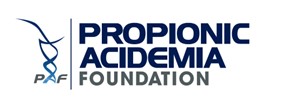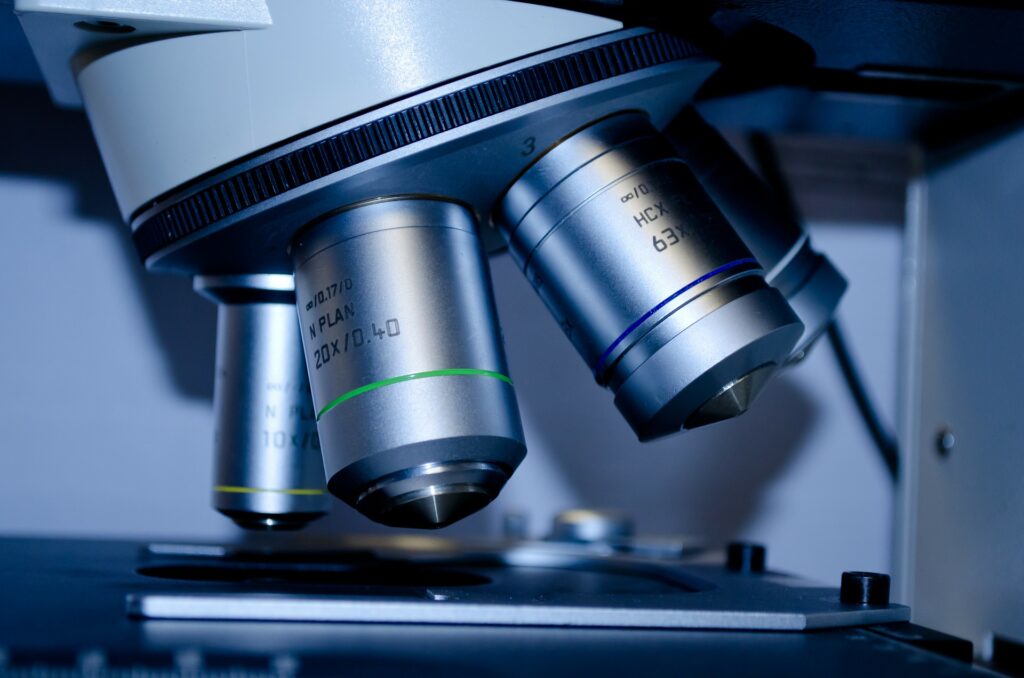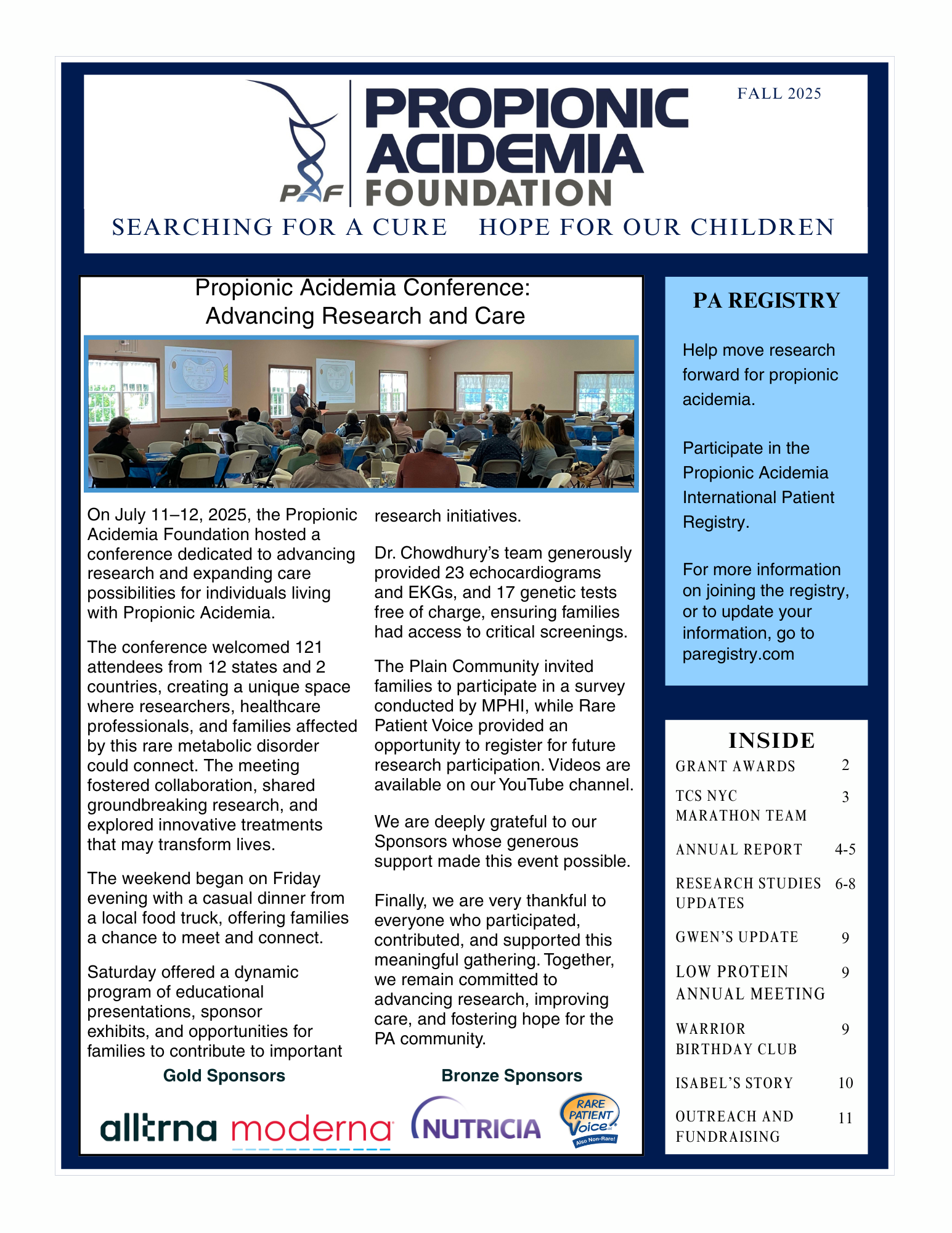Propionic Acidemia (PA) is a rare disorder that is inherited from both parents. Neither parent shows symptoms, but both carry a defective gene responsible for this disorder. It takes two faulty genes to cause PA.
Individuals with PA cannot break down parts of protein and some types of fat due to either a missing or a non-functioning enzyme called PCC. This inability causes a build-up of harmful substances which can cause damage to the person’s heart, liver, brain, and bones. The result can be seizures, delays to normal development like walking and talking, and other health problems. During times of illness the individual with PA may need to be hospitalized to prevent breakdown of proteins within his/her body.
Every day an individual with propionic acidemia walks a metabolic tightrope of getting enough protein for normal growth and development and getting too much protein causing instability. Dietary restriction of total protein, the four offending amino acids (valine, isoleucine, methionine and threonine), and odd-chained fats is the treatment. This is given through a carefully calculated metabolic formula determined by your doctor and nutritionist. The diet is also supplemented with levocarnitine to help remove toxic metabolites. Although some PA children learn to eat, most require gastronomy tube feedings since they have little to no appetite and food aversions.
Most states provide comprehensive newborn screening (CNBS) for Propionic Acidemia. Potential late onset cases can be identified using this type of testing. Such cases are verified through additional blood and urine tests. Diagnosis of acute onset cases is typically made in the intensive care unit when newborns go into a metabolic crisis within the first few days of life.
If the baby isn’t screened at birth, late onset cases may present themselves throughout the first few months of life with failure to thrive, vomiting, trouble feeding, and/or low muscle tone. If the symptoms aren’t addressed, late onset cases are usually diagnosed in the ER after a traumatic metabolic crisis. Early detection and treatment of propionic acidemia can potentially improve the prognosis of the affected individual.
Comprehensive newborn screening is a simple blood test where a heel prick is performed on the baby to get a few drops of blood. The test should be done 24-48 hours after birth. The test is used to identify many life-threatening genetic disorders including Propionic Acidemia. Each state determines which disorders are included in their newborn screening panel. If your state does not screen for Propionic Acidemia, you can have your child tested through an independent laboratory.













